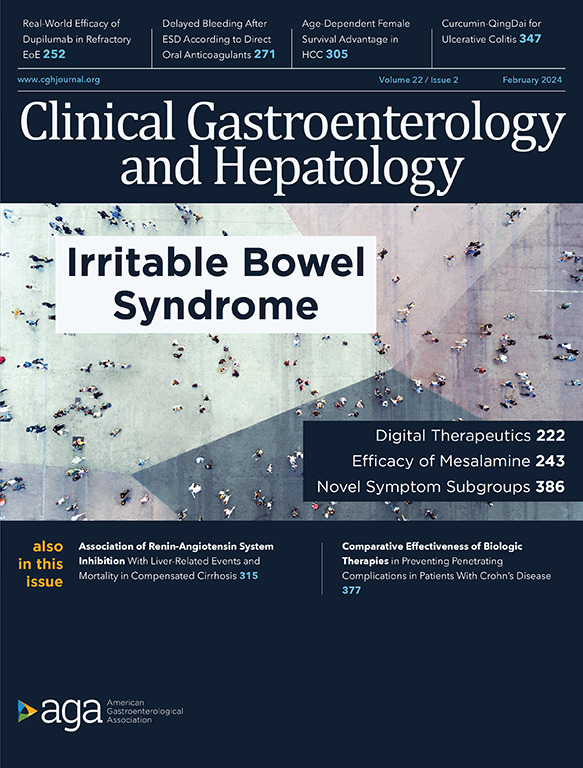具有文化敏感性和包容性的 IBD 护理。
IF 11.6
1区 医学
Q1 GASTROENTEROLOGY & HEPATOLOGY
引用次数: 0
摘要
随着炎症性肠病(IBD)在历来处于不利地位的社区中发病率的增加,当务之急是更好地理解交叉性,即多种形式的歧视(如种族主义、性别歧视和阶级歧视)的影响如何以复杂、累积的方式与健康的社会决定因素交织在一起,影响患者在医疗系统中治疗疾病的经历。文化敏感性护理的特点是能够提供以患者为中心的护理,认识到个人身份的交叉性如何影响他们的疾病历程。对这种影响的有意考虑和敏感性在为历史上处于不利地位的 IBD 患者提供一个包容和欢迎的空间方面发挥着重要作用,并将有助于解决 IBD 患者的健康不平等问题。文化胜任力意味着在理解和尊重不同文化的价值观和信仰的基础上掌握护理技巧,而文化谦逊则包括认识到文化身份的复杂性,并从患者的个人经历中不断学习。将我们的患者护理目标从文化能力提升到文化敏感性,可使医疗保健专业人员及其所在的系统在护理具有不同身份和文化的患者群体时,采取更具包容性和谦逊的视角,以文化谦逊的态度进行领导,并避免维持阻碍提供优质 IBD 护理的隐性和显性偏见的现状。在本文中,我们将回顾有关历史上弱势社区 IBD 护理的文献,探讨文化敏感性护理,并提出将文化谦逊纳入 IBD 实践和研究的框架。本文章由计算机程序翻译,如有差异,请以英文原文为准。
Culturally Sensitive and Inclusive IBD Care
As the prevalence of inflammatory bowel disease (IBD) increases within historically disadvantaged communities, it is imperative to better understand how intersectionality—defined as the complex, cumulative way in which the effects of multiple forms of discrimination (such as racism, sexism, and classism)—intersects and social determinants of health influence the patient’s experiences within the medical system when navigating their disease. Culturally sensitive care is characterized by the ability to deliver patient-centered care that recognizes how the intersectionality of an individual’s identities impacts their disease journey. An intentional consideration and sensitivity to this impact play important roles in providing an inclusive and welcoming space for historically disadvantaged individuals living with IBD and will help address health inequity in IBD. Cultural competence implies mastery of care that understands and respects values and beliefs across cultures, while cultural humility involves recognizing the complexity of cultural identity and engaging in an ongoing learning process from individual patient experiences. Heightening our patient care goals from cultural competence to cultural sensitivity allows healthcare professionals and the systems in which they practice to lead with cultural humility as they adopt a more inclusive and humble perspective when caring for patient groups with a diverse array of identities and cultures and to avoid maintaining the status quo of implicit and explicit biases that impede the delivery of quality IBD care. In this article, we review the literature on IBD care in historically disadvantaged communities, address culturally sensitive care, and propose a framework to incorporating cultural humility in IBD practices and research.
求助全文
通过发布文献求助,成功后即可免费获取论文全文。
去求助
来源期刊
CiteScore
16.90
自引率
4.80%
发文量
903
审稿时长
22 days
期刊介绍:
Clinical Gastroenterology and Hepatology (CGH) is dedicated to offering readers a comprehensive exploration of themes in clinical gastroenterology and hepatology. Encompassing diagnostic, endoscopic, interventional, and therapeutic advances, the journal covers areas such as cancer, inflammatory diseases, functional gastrointestinal disorders, nutrition, absorption, and secretion.
As a peer-reviewed publication, CGH features original articles and scholarly reviews, ensuring immediate relevance to the practice of gastroenterology and hepatology. Beyond peer-reviewed content, the journal includes invited key reviews and articles on endoscopy/practice-based technology, health-care policy, and practice management. Multimedia elements, including images, video abstracts, and podcasts, enhance the reader's experience. CGH remains actively engaged with its audience through updates and commentary shared via platforms such as Facebook and Twitter.

 求助内容:
求助内容: 应助结果提醒方式:
应助结果提醒方式:


